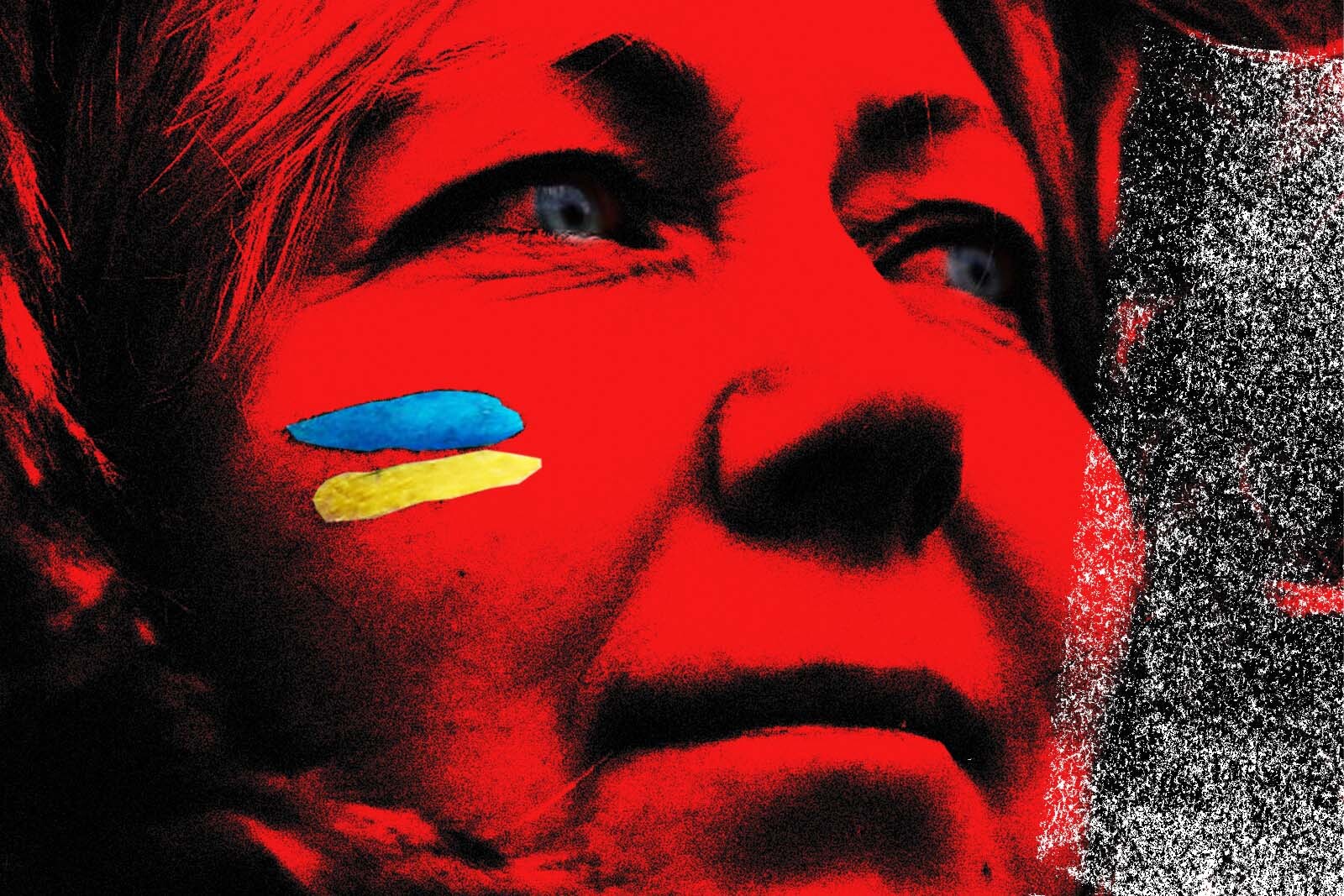
In the wake of Russia declaring war on Ukraine, the value of the cryptocurrency dropped around 7.5 %. Traditional markets were also thrown into disarray. Calling this conflict local is a vast underestimate, as the consequences will be felt far beyond Russia and its democratic neighbor and rock the world’s economies.
A Cold War that seemed to be buried in the history books might come back with full force, creating hazardous tensions between the US and Russia, the world’s largest nuclear powers.
Crypto Market
Crypto markets saw over $242 million in liquidations as markets reacted to Russian troops moving further into Ukraine. The global cryptocurrency market lost 8.41% within the past 24 hours and is $1.59 trillion. Asian stock markets and the United States futures reacted accordingly with the sharp declines.
Sponsored
The bitcoin price plunged 11% to $34,472 minutes after the air raids, and explosions targeted Ukrainian cities. Ethereum dropped even harder and lost more than 15% of its value within the past 12 hours as it dropped to $2,314 levels. It regained value to $2,380 an hour later but still is at its lowest lows since January 24.
The Russia-Ukraine crisis “could drive prices significantly lower in the short-term,” Jonathan Tse, head of trading at crypto platform Copper.co, said to Bloomberg. “However, it could be what’s needed to find a bottom sooner, rather than an ongoing crypto winter for prices slowly grinding lower.”
Sponsored
One of the harsh sanctions the West is considering is cutting off Russia from the SWIFT banking network. This would tremendously affect the Russian economy and businesses. However, this might fuel the faster adoption of crypto, as Russia is one of the biggest crypto miners. President Putin opposed the ban of crypto proposed by the central bank, in 2022.
Impact on the World Economy
The world economies still struggling to navigate the once-in-a-century pandemic will have to face economic backlash from the Russia-Ukraine conflict.
Stock markets worldwide plunged today after the attack amid fears that a war in Europe would fuel higher inflation. Bloomberg quoted Makhlouf, the head of Irish central bank, that, while it’s too early to estimate the invasion’s effects on the economy, the sanctions against Russia and a possible rise in energy prices are making it more difficult for the European Central Bank to counter inflation without hurting the economy.
The energy sector is one of the first to be rocked by the crisis. Oil prices hit $100 a barrel for the first time since 2014, as soon as the Russian assault started. Analysts expect prices to rise much higher still, amid fears of significant disruption to the global energy supply.
Russia is the world’s third-biggest oil producer and second-biggest natural gas producer, ranking among the top energy suppliers to the US and China. Europe gets around 40 percent of its natural gas and 25 percent of its oil from Russia. Soaring heating and gas bills recently shook the continent, as natural gas reserves are at less than a third of capacity, with weeks of cold weather still ahead. European leaders have accused Russia’s president, Vladimir Putin, of reducing supplies to gain a political advantage.
In 2020, the US imported 7 percent of its petroleum and crude oil from Russia. This makes Russia the country’s third-biggest supplier alongside Saudi Arabia. That is one likely reason why the US in recent days signaled that sanctions against Russia would not be aimed at the country’s energy sector.
However, even sanctions not explicitly aimed at the energy market could indirectly affect oil and natural gas exports or provoke Moscow to respond by limiting supply. It will bring consequences, including painful spikes in already high gas prices for Americans.
The sanctions targeting the $11bn Nord Stream 2 gas pipeline connecting Russia with Western Europe might deepen the problem. However, even though the effects are harsh, the immediate impact might be nowhere near as devastating as the economic shutdowns caused by the coronavirus in 2020.
Russia Is Setting Fire to Its Own Economy
On the other hand, it seems that Russia just set its economy on fire. The stock value of Russian-based companies plunged by 50%. Among the affected are Gazprom, GMK Nornik, Lukoil, the largest steelmaker in the Russia NLMK Group, along with Alrosa Group, which specializes in the exploration, mining, manufacturing, and sale of diamonds, also faced losses. Also affected are the multinational corporation Yandex, which provides internet-related products and services, and financial service providers such as Sberbank and VTB Bank.
Russia is a transcontinental behemoth that is one of the most important suppliers of gas, oil, and raw materials. However, unlike China, a manufacturing powerhouse and crucial part of global supply chains, Russia is a minor player in the global economy. With half the people and fewer natural resources, Italy’s GDP is bigger than Russia’s.
“Russia is incredibly unimportant in the global economy except for oil and gas,”
Jason Furman, a Harvard economist who was an adviser to President Barack Obama, said to The New York Times.
“It’s basically a big gas station.”
Disruption in Food Chains
Ukraine is known as the “breadbasket of Europe,” and is also the world’s largest exporter of seed oils like sunflower and rapeseed. The country sends more than 40 percent of its wheat and corn to the Middle East or Africa. There are worries that further food shortages and spikes in food prices could stoke social unrest. The grain flow makes up more than 70 percent of Egypt and Turkey’s total wheat imports.
Due to the pandemic, food prices climbed to their highest level in more than a decade, according to a recent United Nations report. Russia is the world’s largest supplier of wheat and, together with Ukraine, accounts for nearly a quarter of total global exports. If Ukraine is at war, the exports most likely will drop, and harvests will be lost.
Impact on World Order
Apart from the challenge to world economies, there will be a moral price of the attack, as democratic values and world peace is at stake.
Invading other sovereign countries is a severe violation of international law and we are facing the biggest threat to world peace since the cold war.
Historically, Europe has been the ground arena for two world wars already. Even though the NATO alliance is not taking military action in not-member Ukraine so far, it will be bound to give necessary support to Russian neighbors in the Baltics. Even though the countries are members of NATO, many experts say they could become the next target for Russian expansion.
